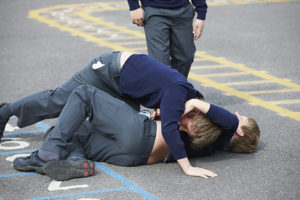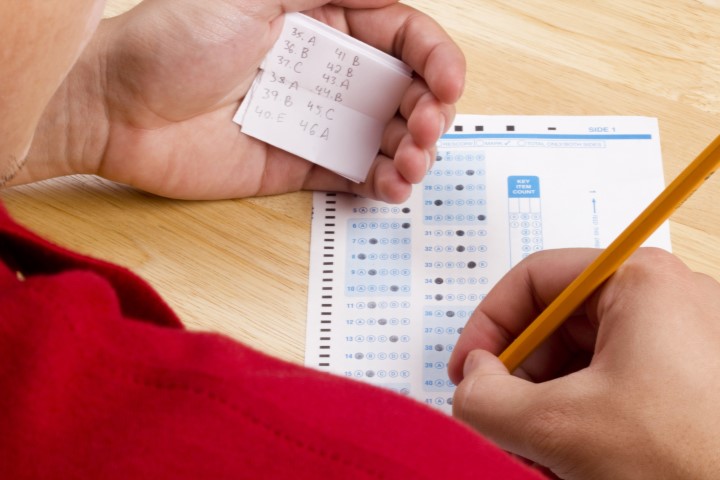Dozens of students at Gwinnett County, Georgia’s Dacula High School were busted for cheating after school officials discovered answers to countywide final exams posted to social media in late May.


Dozens of students at Gwinnett County, Georgia’s Dacula High School were busted for cheating after school officials discovered answers to countywide final exams posted to social media in late May.
School officials issued a statement to Fox 5:
Dacula High School addressed a cheating issue during the last week of school. It appears that answers to final exams were posted on social media and used by students. School leaders became aware of the social media postings and were able to actively review exams for potential cheating.
Based on a preponderance of evidence, it appears that approximately 80 Dacula students used the answers posted when taking their finals. The school has addressed the issue with the students, providing them with appropriate discipline consequences. As the exams involved were for 10th grade language arts, chemistry, and world history, no seniors were involved and this did not affect graduation.
Officials would not elaborate on the disciplinary action against students, but said they believe the answers likely came from a student at a different school who already took the tests. It remains unclear whether students at other schools used the answers.
The Institute for Advanced Studies in Culture examined cheating in 10 types of American high schools as part of a broader look at character and citizenship summarized in “The Content of Their Character.”
Analyzing cheating in rural schools, education researcher Richard Fournier noted:
… While teachers might be fully able to articulate the moral ideals behind their disciplinary decisions, their explanations typically varied, which presumably sent mixed moral messages to students. Similarly, although teachers, students and parents offered similar examples of bad student behavior – cheating, bullying, selfishness, etc. – they either were unsure or gave different answers when pressed for insight into why these things were bad or how students should be disciplined. (Page 67)
Students often face temptations to cheat in school, and too many of them give in to it. Without a solid reason why students should put honesty ahead of their personal gratification, they struggle to resist the temptation to cheat.
But teachers have numerous opportunities every day, in every class, with every student, for every subject to infuse discussions about integrity, and the motivations for behaving honestly.
The Jubilee Centre for Character and Virtues offers ways to start the conversation with the guide “The Virtue of Truthfulness,” which encourages educators to prompt students to think about “the benefits of acting out” truthfulness.
“Acting truthfully guarantees social relations: we are who we say we are. This enables stability; it also enables us to think through how and where we need to improve as people,” the guide points out. “Truthful people grow in virtue much quicker than those who struggle to be truthful about who they really are.
“It’s also worth thinking through what human relationships would look like were they to be based on presenting ourselves in a false light: hypocrisy, deceit, lying and the breaking of promises would all dissolve social bonds.”